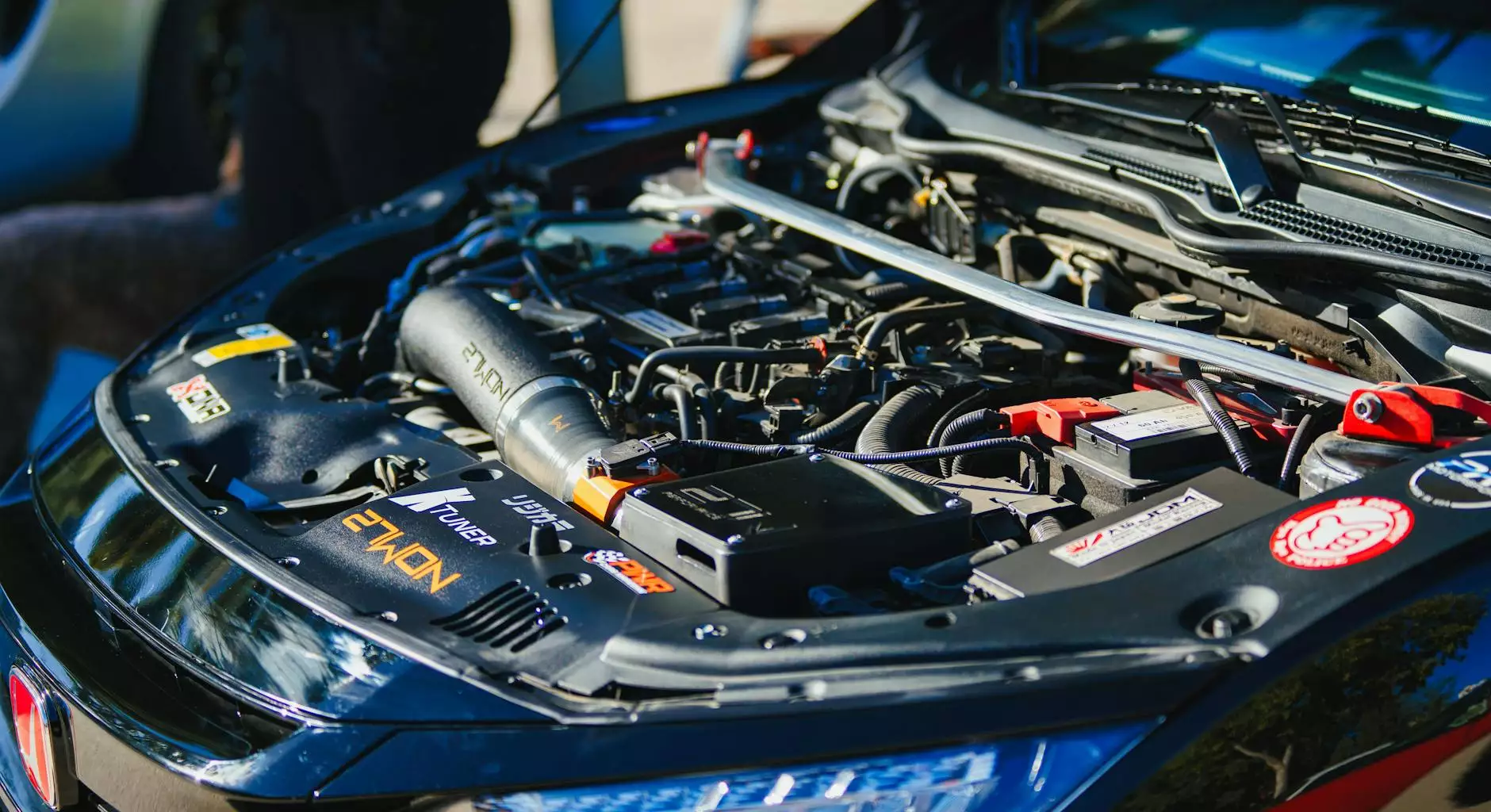The Ultimate Guide to Piston Engine Parts and Their Importance in Diesel Engineering

The piston engine parts are vital components of any diesel engine, playing a key role in the functionality and efficiency of the engine. Understanding these parts not only helps in maintenance but also enhances performance and longevity. In this comprehensive guide, we will explore the various elements that make up piston engines, their functions, and their significance in the world of diesel engineering.
1. What Are Piston Engine Parts?
Piston engine parts refer to the various components within an internal combustion engine that work together to convert fuel into mechanical energy. The main components include pistons, connecting rods, crankshafts, cylinder heads, and more. Each part plays a specific role in the engine cycle and contributes to the overall performance.
1.1 Key Components of Piston Engine Parts
- Pistons: These cylindrical components move up and down within the cylinders, compressing air and fuel mixtures and creating combustion pressure.
- Connecting Rods: These rods connect the pistons to the crankshaft, translating the piston's linear motion into rotational motion.
- Crankshafts: A vital component that converts the linear motion of the pistons into rotational motion, driving the vehicle’s wheels.
- Cylinder Heads: The component that houses the intake and exhaust valves, as well as the spark plugs (in petrol engines) or glow plugs (in diesel engines).
- Valves: Responsible for controlling the intake of air and fuel as well as the exhaust of combustion gases.
- Rings: Piston rings create a seal between the piston and the cylinder wall, preventing combustion gases from leaking and maintaining pressure.
- Gaskets: These are used to seal various components to prevent leaks, maintaining optimal pressure within the engine.
2. The Importance of Piston Engine Parts
The functionality and durability of a diesel engine rely heavily on the quality and condition of its piston engine parts. Neglecting these parts can lead to significant mechanical failures, resulting in costly repairs and downtime. Here are several reasons why these components are crucial:
2.1 Enhancing Engine Performance
High-quality *piston engine parts* ensure that engines operate at their optimal performance levels. Well-maintained components allow for better combustion, improved fuel efficiency, and reduced emissions. This results in enhanced power output, making the vehicle more reliable on the road.
2.2 Maintaining Engine Longevity
Regular maintenance and timely replacement of worn-out parts can dramatically extend the life of an engine. For example, worn piston rings can lead to loss of compression and increased oil consumption, which might eventually necessitate a complete engine rebuild if not addressed.
2.3 Cost Efficiency
Investing in quality piston engine parts may seem costly upfront, but it pays off in the long run by reducing maintenance costs and improving fuel efficiency. An efficiently running engine lowers overall operational costs for businesses relying on heavy machinery and transportation vehicles.
3. Types of Piston Engine Parts
Understanding the types of piston engine parts is essential for any diesel engine enthusiast or operator. Here’s a closer look at the primary categories:
3.1 Engine Block
The engine block is the foundational component of the engine, containing the cylinders where combustion occurs. The material used can significantly affect the engine's thermal properties, weight, and durability.
3.2 Pistons
Pistons can be made from various materials, including aluminum for lighter weight and better thermal conductivity. They come in various designs optimized for different applications, including performance, efficiency, and durability.
3.3 Crankshaft
Crankshafts are typically made from forged steel or cast iron to withstand high-stress levels during engine operation. The design also impacts the engine's balance and overall efficiency.
3.4 Valvetrain Components
The valvetrain includes parts such as camshafts, pushrods, and lifters. These components work together to control the timing of valve openings and closings, which is critical for maintaining engine efficiency.
3.5 Gaskets and Seals
Ensuring that the engine maintains proper compression and minimizes leaks, gaskets and seals are critical for preventing fluid loss and maintaining pressure within the system.
4. The Engineering Behind Piston Design
The design and engineering of piston engine parts, particularly pistons, is a complex process that involves careful consideration of material selection, thermal dynamics, and performance characteristics. Here are key factors influencing piston design:
4.1 Material Selection
Materials like hypereutectic aluminum are often used in piston manufacturing for their light weight and high strength. Advanced manufacturing techniques, such as forging and machining, create components that can withstand extreme conditions.
4.2 Shape and Size
The shape and size of the piston can affect combustion efficiency. For example, a dome-shaped piston can enhance turbulence, promoting better fuel-air mixing, while a flat-top design is often more effective at maximizing compression.
5. Common Issues with Piston Engine Parts
Even with quality parts, issues can arise due to wear and tear over time. Here are some common problems associated with piston engine parts:
5.1 Piston Slap
As pistons wear, they may begin to move too freely within the cylinder, leading to a noise known as piston slap. This can indicate that the piston and cylinder walls are heavily worn.
5.2 Ring Wear
Piston rings experience wear from constant friction and heat, potentially leading to loss of compression and increased oil consumption if not replaced.
5.3 Oil Leaks
Worn gaskets and seals can lead to oil leaks, which can dramatically affect the engine’s performance and lead to serious damage if not promptly addressed.
6. Maintenance Tips for Piston Engine Parts
Proper maintenance is crucial to ensure the longevity and efficiency of piston engine parts. Here are some important maintenance tips:
- Regular Inspections: Schedule regular inspections to assess the condition of pistons, rings, and cylinders.
- Oil Changes: Regular oil changes help reduce friction and wear on engine components.
- Monitor Performance: Pay attention to changes in engine performance, such as decreased power or increased fuel consumption.
- Use Quality Parts: Always opt for high-quality replacements when servicing your engine to ensure compatibility and durability.
- Consult Professionals: If unsure about any maintenance tasks, consult a qualified mechanic to avoid costly mistakes.
7. Investing in Quality Piston Engine Parts
At client-diesel.com, we understand the importance of high-quality piston engine parts for your diesel engine. By offering a comprehensive range of diesel engine parts and a dedication to customer satisfaction, we can help ensure your engine runs smoothly and efficiently. Here’s why investing in quality parts matters:
7.1 Reliability
Quality piston engine parts ensure that your engine operates reliably, reducing the risk of breakdowns and enabling smooth operations in commercial applications.
7.2 Performance
High-quality parts directly impact the performance of your engine. Improved inefficiencies lead to better fuel economy and enhanced power output.
7.3 Warranty and Support
Reputable suppliers often provide warranties and support for their products, guaranteeing that you receive assistance if any issues arise.
Conclusion
In summary, understanding the intricacies of piston engine parts is vital for anyone involved in diesel engine maintenance and performance. From the engineering behind pistons to the importance of regular maintenance, this guide has elaborated on why these components are critical for achieving excellence in diesel engine performance. Whether you are a technician, operator, or enthusiast, ensuring that your engine’s components are of the highest quality will help you achieve reliability, efficiency, and longevity. For the best in diesel engine parts, remember to visit client-diesel.com.



